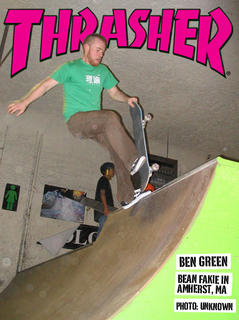So thanks to Ian for having a birthday. It was good running into you peeps!
I thought I'd throw out some more quotes just for kicks, as I pretend to be a student again at Rao's. This is from the quintessential introductory book on Barth's theology by Eberhard Busch (it's really well-written, just like George Hunsinger's stuff). It's called "The Great Passion: An Introduction to Barth's Theology:"
"Barht's theology does not query theology regarding its spiritual substance. For all the questioning, theology has its own distinctive quality. Even where it is modern, it repudiates what is coquettishly novel. Even where it stands in the tradition of the church, it plows a new furrow. When speaking about what concerns it deeply, it refrains from subjective emotionality. And yet when it thinks "strictly objectively," it does so with perceptible warmth. It speaks often in an elementary way yet avoids catchwords. It goes into detail at times but steers clear of what is unimportant. It focuses on the singular center of faith yet sees it from different concrete angles. It does not address a detail without keeping the total picture always in view. It gets down to the root of things yet keeps in mind the possible and necessary rammifications. It steadfastly puts to scripture the question whether this is how it is, and it does not separate from dogmatics the ethical question: "What shall we do?" It professes a definite knowledge but does not ride certain principles to death, because it is always engaged in a long marcch forwards, without ever roving around short of breath and purpose. Even in difficult movements of thought it never loses the childlikeness of faith. Starting with faith, it relentlessly seeks insight, enlightenment. It never flees from problems, and it recalls forgotten issues. In the flow of thought it anticipates possible objections yet also has the courage to ignore purportedly relevant challenges because - and here Barth praised his unorthodox teacher, C. Blumhardt - "other things were more important to him." in addressing its temporal context, his theology was more like the needle of a compas than a weather vane. Reflecting on the eternal truth of God, it spoke not from the rocking chair but from the trenches of the church militant. It looked at the church's present status but also looked beyond the horizon at the presence of world-wide church history, the history of our Christian forebears - "What a lot of remarkable things, long assigned to the lumber room, I have come past all along the way and really, I have found almost everywhere that in each of them there was something that was worth saying again." His theology was looking ahead, strengthening the church to continue its existence as an "unassuming . . . mobile brotherhood" even when it had lots its "acknowledged position" (Church Dogmatics IV/4, p. 168). Theology was for Barth a "free science." He knew that it was tied to the object of its knowledge, and yet it moved in the air of freedom in which it could appropriate the insights even of non-Christians. It distrusted the force of its own logic and asked always whether its efforts of thought might not involve a "flight from the living God." Nevertheless, it was always sure of its subject matter. IT questioned much yet never doubted the divine "presupposition." Adopting a phrase of Nietzche, we might call Barth's theology a "joyous science." We can look calmly at its weaknesses, and as Barth said of Calvin's theology without overlooking its faults, we can affirm that it has a powerful "flow."

